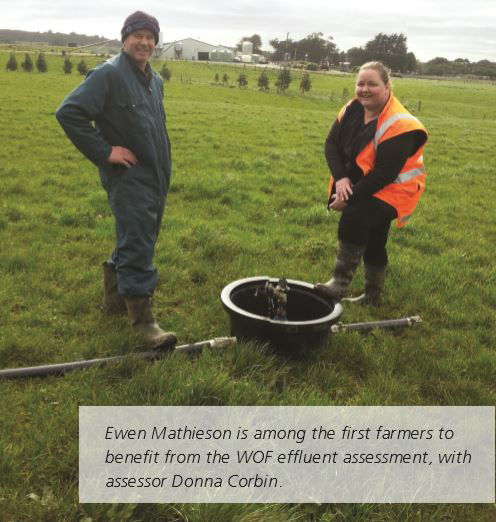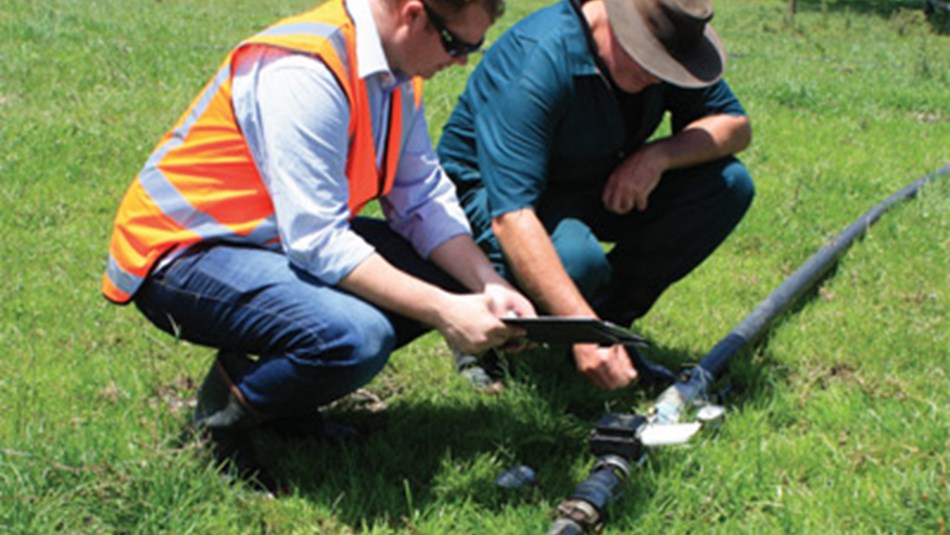Effluent WOF takes worry out of compliance
Inside Dairy
Ensuring the farm effluent system is efficient, compliant and robust can now be done with an independent assessment, giving farmers the heads up on problems that may affect their system’s future performance.
DairyNZ’s sustainability team leader Theresa Wilson says the Dairy Effluent Warrant of Fitness (WOF) programme aims to
provide the same peace of mind as getting a warrant for the family car, or farm ute does.
Launched earlier this year, the scheme is starting to draw in more farmers who have been, or will be, upgrading the farm effluent system to ensure they remain compliant. This is especially important if farmers are building off-paddock facilities and managing increasing volumes of effluent.
WOF assists planning process
Riverton farmer Ewen Mathieson is among the first farmers in the country to take advantage of the WOF effluent assessment.
His 360ha property is one of several within the newly formed Pourakino Catchment Group in western Southland aiming to improve water quality in the Pourakino Arm of the Jacob’s Estuary.
“Our system is compliant and has another four years to run on our consent. However we have a large catchment area, with the dairy, underpass, calving pad and race areas.
“The WOF process was to get an understanding of what we needed to do to maintain best practice, and enable us to budget on what we would need to spend over the next four years, before our consent was up,” says Ewen.
Irrigation area increased
Part of the challenge for Ewen has been to try and increase the area his system is capable of irrigating with effluent. The present system covers the 72ha required by council for the 900 cow herd, but he has one eye on the future where extended areas including the underpass could be included in effluent capture.
“We wanted to get a larger area irrigated over a 24 hour period and still be compliant.”
Ewen’s WOF was conducted by independent assessor Donna Corbin.
Donna’s assessment is a “top to tail” process covering a farm’s individual characteristics in terms of soils, rainfall, and contour. Work also incorporates nutrient loadings, irrigator performance, and storage capacity on farm.
Options identified Donna identified the options for increasing effluent application over wetter periods.
“We identified the opportunity to “pulse” effluent out by adding extra lines to the system, to get three times the amount of effluent out in a low risk way.”
For Ewen the value of the WOF process is enhanced thanks to Donna’s independent status.
“You need advice that has your best interests at heart, that enables you to make choices that best suit your system, not a certain piece of equipment or process.”
The number of rural professionals certified as WOF effluent assessors is increasing and farmers can choose assessors at www.effluentwof.co.nz.

Book a WOF with a certified effluent assessor

